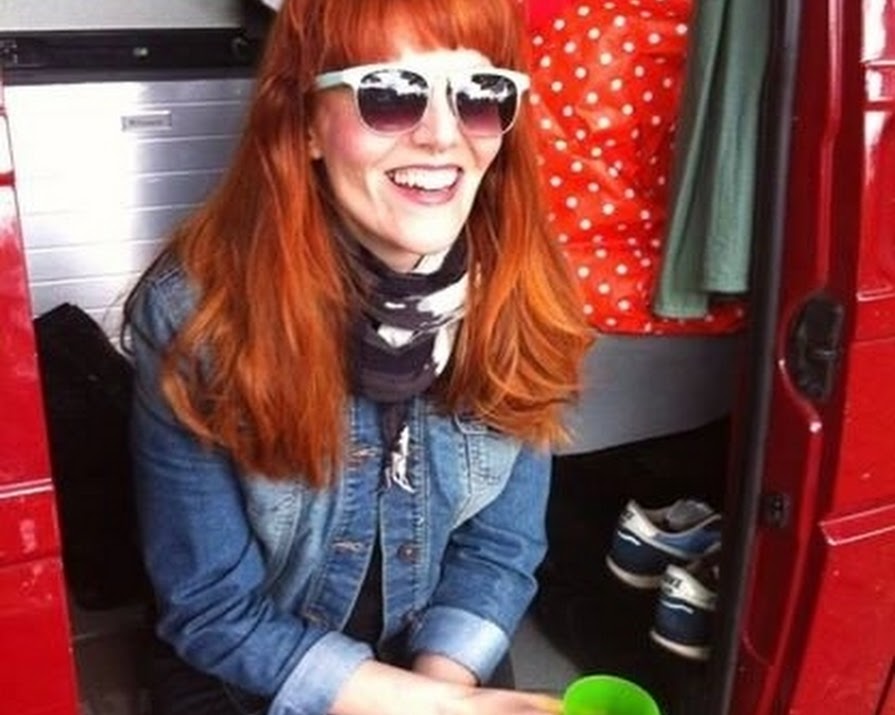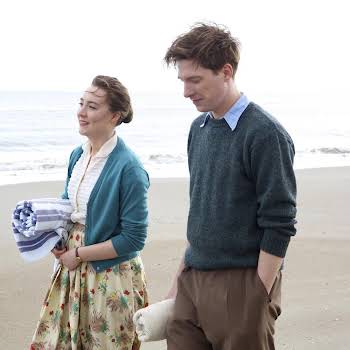
By Jeanne Sutton
06th Jun 2014
06th Jun 2014
Angela Towers is one of the women behind the No More Page 3 campaign, in advance of a trip to Dublin we got her on the phone…
During the rush of media jubilation of the London Olympics in 2012, writer and actress Lucy-Anne Holmes was reading the Sun newspaper. Despite Jessica Ennis winning a gold medal in the heptathlon, the largest image of a woman in one of the biggest selling British newspaper was of a young woman topless on page three. Letters to the editor, David Dinsmore, followed but nothing changed. Then Lucy decided to establish the No More Page Three campaign to ask Dinsmore to change the newspaper’s representation of women and do away with the antiquated Page Three. After forty years of oudated Carry On antics, a few feminsit waves and a female prime minister surely it’s time the old guard grew up? So far the campaign has been a social media success, drawing support from Russell Brand, Eliza Doolittle, Jennifer Saunders and Lauren Laverne.
Angela Towers is a t-shirt designer for feminist campaigns and charities living in Kenville, Cumbria. From her home in the beautiful Lake District she acts as a spokesperson for this very modern campaign. We caught up with Angela before her keynote speech today at the National Women’s Council of Ireland AGM “Tell Me Why We Still Need Feminism.”
How did you get involved with the campaign?
I was thinking about this today. I think we all have a moment of how we realise we are feminist, that we have feminist values. That happened to me when I was doing my degree. I was doing a fashion degree and I realised that fashion doesn’t like women really much, in the sense that we objectify women’s bodies a lot through fashion and there is very narrow beauty ideal that is peddled all the time. Especially in high fashion there is a tendency to glamourize violence against women. It was just from experiences I had at university whilst designing that switched me onto a culture in a wider sense of what messages we send through our media about women. For me Page Three is a great symbol of a wider problem in the media with regards to the way we represent women, and the narrow way we represent men. Lucy set the campaign up in August 2012 and when I spotted it online I contacted her straightaway to see if she wanted any help and we went from there. Today there’s about twenty of us on the team all doing different jobs.
With The Vagenda, Caitlin Moran, Everyday Sexism and activists such as yourselves and Kat Banyard, there’s been an explosion of young feminist movements and campaigns in the UK. Why do you think that is happening now?
In one sense I think women have had enough. We’ve reached the point of saturation where we’re quite literally like ‘ What else can we do to objectify women’s bodies?’ I know personally when I see things like music videos I feel like ‘What’s the next move here?’ Women generally are feeling a bit ‘this is getting a bit ridiculous now.’
I think that the explosion in terms of younger people getting on board with it is very much down to the fact that people like Laura Bates, The Vagenda and us are making it simple to get on board and to join in through social media. You can be an online feminist in five seconds fast. All you need to do is join in with a hashtag or send a tweet and you’re part of a larger community all of a sudden, part of community sharing ideas and having debates and discussions. It’s really exciting and really engaging for young people.
Then there are elements of it that are very accessible like the No More Page Three campaign. It’s such a simple idea and very easy to get on board with the idea that having soft pornography in a newspaper is perhaps not a modern way of thinking in 2014. We’ve come to a point in our culture where it’s very strange when we look at how we represent women. It’s extremely odd. It doesn’t represent reality at all. I think younger people are really switched on to that, better perhaps that older generations because they’re under such pressure from the media.
Does No More Page 3 have a stance on Rihanna and Grace Coddington’s Instagram’s no nudity policy?
Personally I think the two are absolutely linked. The fact that nipples are considered to be obscene is very much linked to the level at which we fetishize and objectify women’s bodies in the media. We’ve made them obscene just by refusing to represent them in any other way. We don’t have conventional nudity in newspapers, we don’t have normal looking women nude in newspapers. Thay has made breasts a very, very sexualized. Nudity in newspaper is one thing but sexualised nudity is something totally different. It’s wrong that social media platforms like Facebook consider nipples to be obscene and they don’t allow them. That’s not equality. We don’t consider male nipples to be obscene, why do we consider female nipples to be obscene? People simplify our argument and say well you’re against nudity – it absolutely is not that. We’re against the narrow depictions of female bodies that we see currently in our media. the result of that is the censoring of female bodies. They’ve suddenly become these sexualised objects and we’re not getting any choice in the matter.
I love the conversation that we’re having about it. It’s difficult – you can’t exist either way. You’ve got to be sexy, but you’ve got to be conventionally sexy. You can’t be too sexy. You can’t be sexy on your own terms. You’ve got to be sexy on the media’s terms. It’s just an absolute mind field for women. I think it’s really sad the way we do look at women’s bodies at the moment and that’s one of the things I feel really strongly about changing. In short, female nudity seems like it’s only acceptable when it’s being packaged for male consumption.
The Co-opertive chain of stores in the UK banned so-called ‘lad mags’ last year and then Nuts closed down. Do you think that’s down to the availability of internet porn, commercial decisions or a change in attitude?
I think it’s probably a bit of everything. What all those magazines suffer from is they stereotype women, and they stereotype men as well. I think men reject that notion of masculinity as well. Men are way more complex than those magazines would have us believe. They’ve had their day in a sense. Perhaps there was a time where they were considered to be daring, forward thinking, interesting or funny. Now they’re pigeonholed, offensive on all counts. I think that that’s an element for why the sales may have gone down. Another element of it is that sexual material or porn is very easily accessed online, so perhaps it’s down to that as well. I don’t know what the magazines themselves are saying but I imagine it’s down to a bit of both. They were a bit like Page Three, stuck in their ways in how they wanted to engage with men and how they wanted to represent women.
No More Page Three are in charge of the legislature for a day. What are you going to do?
We are not asking for legislation, or a ban or anything like that. Our message is quite simply to turn up the volume on the voices of people who care about this issue and to try and effect change that way. In terms of legislation it’s really difficult to think about but the Levenson inquiry which was held recently in the UK had some recommendations with regards to how women should be represented in the media. In terms of influence the media has it should refrain from presenting women as sex objects or inferior beings. It’s a good basic guideline but unfortunately that has been excluded from the debate. With the power that newspapers like the Sun have, should come great responsibility. They should be asked to represent people fairly. In an ideal world I would love if we could have some sort of Hippocratic oath where if you’re a news editor you have to take an oath that says you will do you’re very best to represent people fairly, to represent the news accurately.
Your recent Irish Times op-ed attracted the ire of the below-the-liners almost immediately. How does a feminist activist get the job done with all that caps lock shouting?
Honestly I just ignore it. I never even look at the comments because I absolutely know that it’s a given you’re going to get a certain level of ill-informed hatred directed at you as soon as you open your mouth as a woman. The only thing I can do is ignore and carry on and do what I’m trying to achieve. People always say to me, “Have you seen those comments?!” I just say no. It’s one of those things that I think has helped made the No More Page 3 campaign so successful is that we’re all very positive and don’t engage with the negative. It doesn’t get you anywhere arguing with people who are never going to understand your point of view. The best thing you can do is keep speaking and find the people who do agree with you.
Angela Towers was in conversation with Jeanne Sutton, you can follow both on Twitter, @MissesTea and @jeannedesutun. For more details about the No More Page Three campaign see here.























